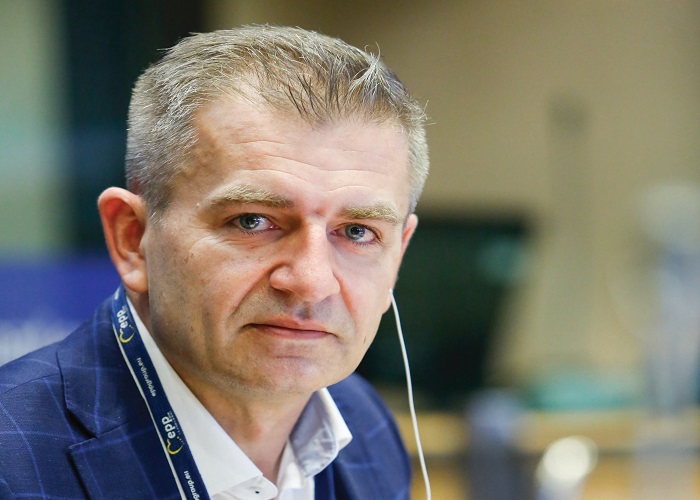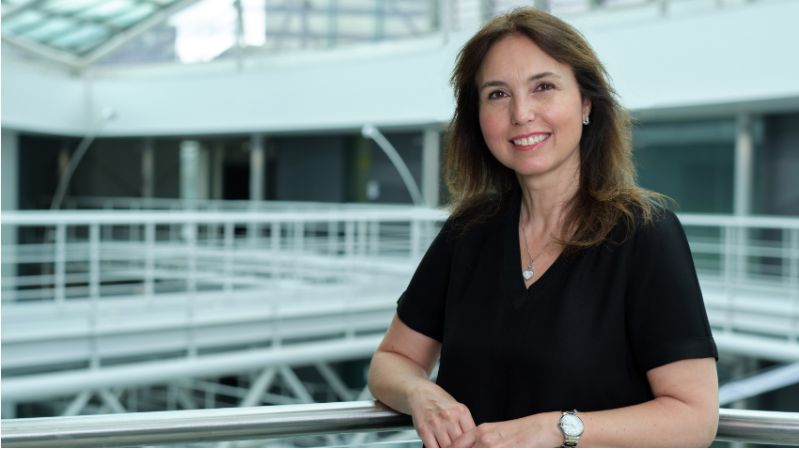With disparities in cancer care among Member States, Chair of Parliament's Special Committee on Beating Cancer (BECA) Bartosz Arłukowicz (EPP, PL), wants treatment tackled at a European Union (EU) level, allowing patients access to doctors and therapies in different countries.
In the next 25 years, an estimated 100 million Europeans are expected to be diagnosed with cancer. Yearly, around 3.5 million citizens are given a ‘cancer diagnosis’, of which over 1.3 million die due to their illness. Also tragically, every year almost 6,000 young children lose their battle to cancer. These are the current numbers of those affected, however it is predicted to increase in the coming years.
Due to this rise in cancer patients, the EU decided to face the battle of overcoming cancer by establishing the Special Commitee on BECA, where I had the privilege to act as Chair from September 2020 to February 2022. The work of the Committee ended with the publication of the European BECA report, which covered topics ranging from cancer treatment to raising awareness about the comprehensive cancer prevention system.

“To support each state equally, we have decided to recommend the creation of a comprehensive cancer prevention system, to dispose of geographical boundaries”
When campaigning to be elected as a Deputy of the European Parliament, I made it my priority to focus on combating cancer in member states and creating a strategy which could be adapted across the EU. Therefore, when selected as a Chair of the Special Committee on BECA, I decided to quickly focus on the BECA report, due to the urgency of this matter. The Committee’s role was to focus on the disparities in cancer treatments across different Member States, and to identify key policy recommendations for the coming years.
The report identified the most important policies to implement, one of which was the investment of European funds into new technologies, prevention, and examinations, to equalise access to cancer treatment across countries. To support each state equally, we have decided to recommend the creation of a comprehensive cancer prevention system, to dispose of geographical boundaries. This includes a European diagnosis and treatment standard for all.
Alongside the work of the Committee, we have campaigned for the reduction of alcohol and cigarette use, which, according to experts, has a tremendous impact on decreasing the number of cancer patients in Europe. We have also recommended creating awareness campaigns in the form of ‘healthy food signs’, as well as financing EU information and educational campaigns to promote ways in which citizens can prevent cancer.
The work of the BECA Committee has very much focused on identifying that cancer treatment should be addressed on a European scale because of the difference between states. This would allow patients to seek support abroad and doctors to exchange treatment plans. We, as the Committee, believe that combining efforts to fight cancer will have a great positive impact on European society.
A new multidisciplinary model could improve the standard of cancer care for underserved communities, says Berfu Yaziyurt, Regional President for Oncology International Developed Markets at Pfizer.
According to the European Commission, cancer indiscriminately affects 3.5 million people in Europe every year.1 Huge scientific advances have led to ever increasing ways to prevent, diagnose and treat cancer. Sadly, access to these solutions remains unequal. There are significant disparities in cancer care, largely affecting people over the age of 65, racial and ethnic minorities and people living in rural areas.2 The COVID-19 pandemic shone a light on health disparities, while widening the inequality gap in cancer care.
Tens of thousands of people living with cancer were unable to secure a diagnosis or access treatment.1,3 The stark consequences of COVID-19 can be seen through the European Cancer Organisation’s Time to Act Data Navigator, which assesses the consequences of the pandemic on cancer care delivery across Europe. This tool compiles data from 17 European countries and 200 sources, including Pfizer.

Policy reform to develop a more collaborative, multi-disciplinary model – bringing together healthcare professionals, patient advocacy groups, policy makers, politicians, and industry – could help drive higher standards in cancer care.
While COVID-19 magnified the disparities in cancer care, the solution needs to look beyond fixing the impact of the pandemic. Instead, it needs to tackle the underlying causes of these disparities so that we do not return to ‘normal’ but return to ‘better’. At Pfizer, we understand the need to not only continue prioritising innovation in oncology, but also to re-emphasise the vital importance of effective cancer diagnosis, treatment, and care.
While progress has been made in these areas in the wake of COVID-19, with the predicted surge of advanced cancer diagnoses on the horizon,4 we need to continue this trajectory and take action. Policy reform to develop a more collaborative, multi-disciplinary model – bringing together healthcare professionals, patient advocacy groups, policy makers, politicians, and industry – could help drive higher standards in cancer care.1
At Pfizer, we’re proud to have created ‘An Accord for a Healthier World’, a first of-its-kind initiative where we provide all our current and future patent-protected medicines and vaccines on a not-for-profit basis to people living in 45 lower-income countries around the world. The initiative will address barriers to medicines access and improve the health of 1.2 billion people. We’re also working to optimise awareness of and access to clinical trials in underrepresented populations, including in multiple myeloma (blood cancer), supporting initiatives which close the health literacy gap, and expanding information and resources to support people living with cancer and their caregivers.
A positive learning from COVID-19 is the extraordinary progress we can make when we unite behind one goal. At Pfizer, our efforts to develop the vaccine for COVID-19 led to our ‘Project Lightspeed’, a fast and agile mindset and way of working that is non-hierarchical, flexible and fluid – one we’re applying across the organisation, including in oncology. I believe a similar approach can be applied to a new multi-disciplinary model which values the expertise of each stakeholder, works in synergy to improve cancer care standards for underserved communities, and unites in the goal of giving everyone with cancer an equal chance of survival.
1 European Commission. Europe’s Beating Cancer Plan. 2021. Available at: https://ec.europa.eu/health/system/files/2022-02/eu_cancer-plan_en_0.pdf.
2 Vrdoljaka, E. et al. Addressing disparities and challenges in underserved patient populations with metastatic breast cancer in Europe. Breast. 2021;55:79-90.
3 https://www.macmillan.org.uk/get-involved/campaigns/we-make-change-happen/we-shape-policy/covid-19-impact-cancer-report.html.
4 World Health Organization. Statement – Cancer services disrupted by up to 50% in all countries reporting: a deadly impact of COVID-19. 2022. Available at: https://www.who.int/europe/news/item/03-02-2022-cancer-services-disrupted-by-up-to-50-in-all-countries-reporting-a-deadly-impact-of-covid-19.
This content was commissioned by Pfizer and produced by Dods Impact
Sign up to The Parliament's weekly newsletter
Every Friday our editorial team goes behind the headlines to offer insight and analysis on the key stories driving the EU agenda. Subscribe for free here.